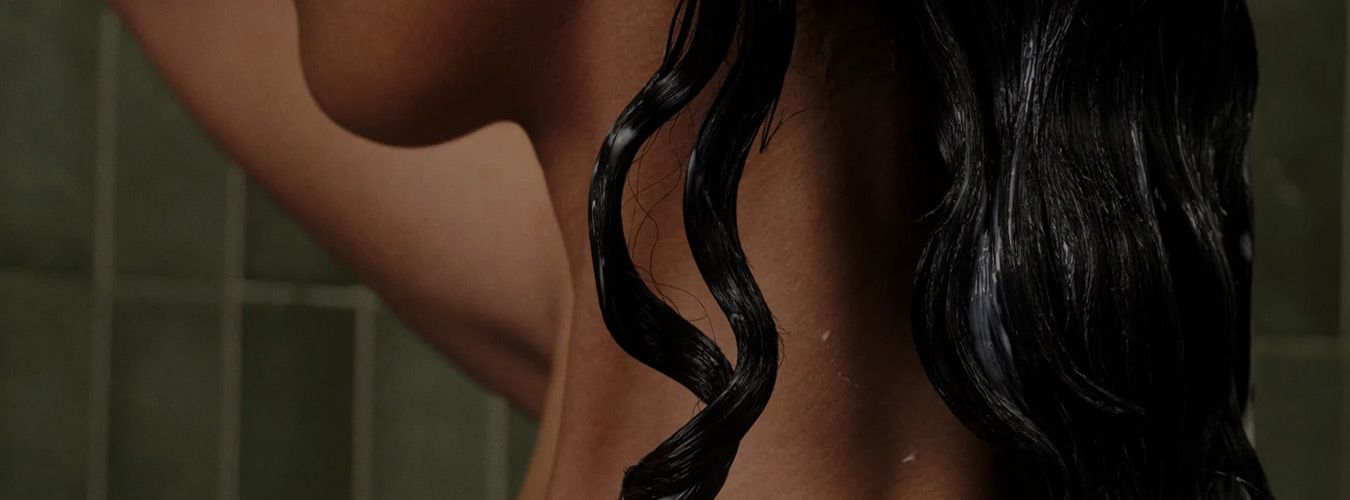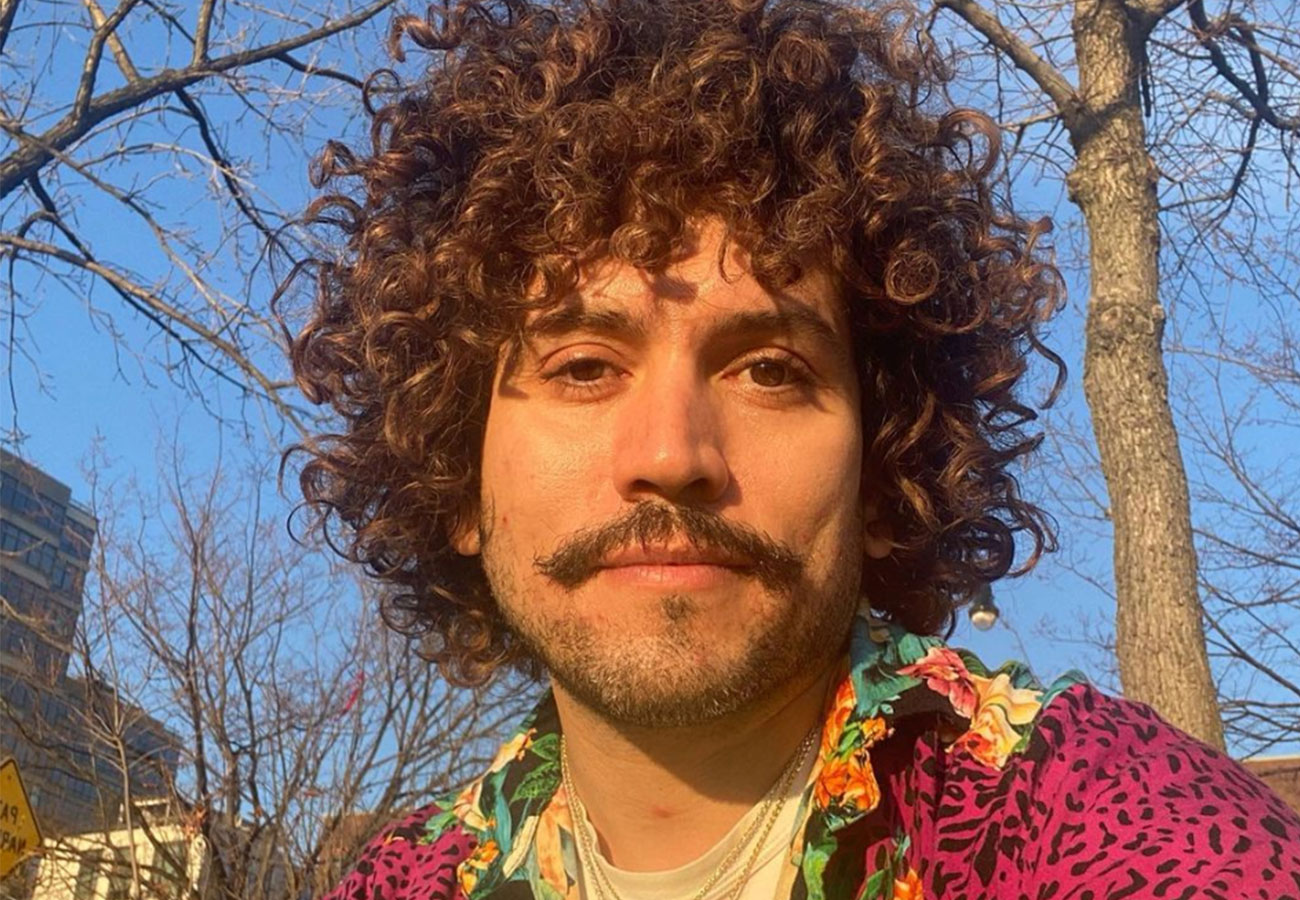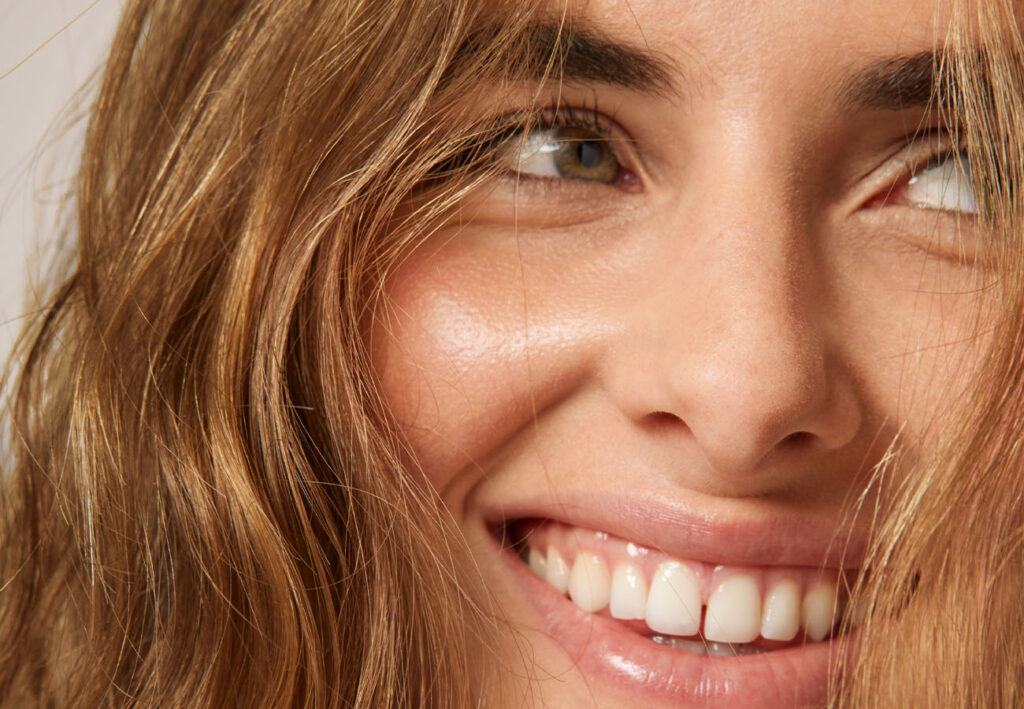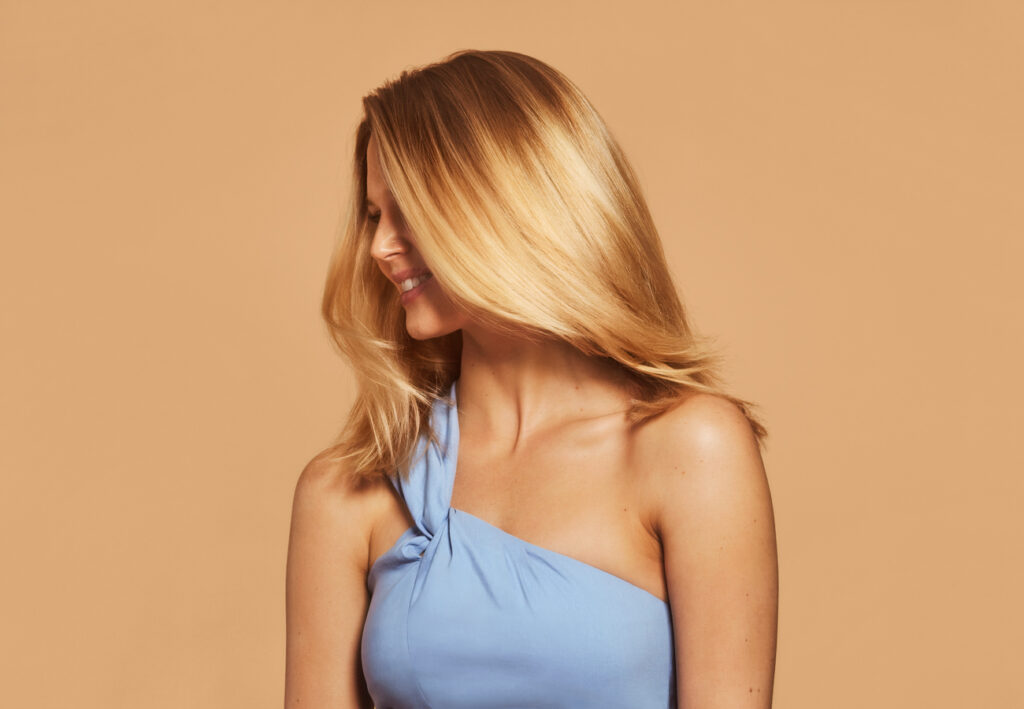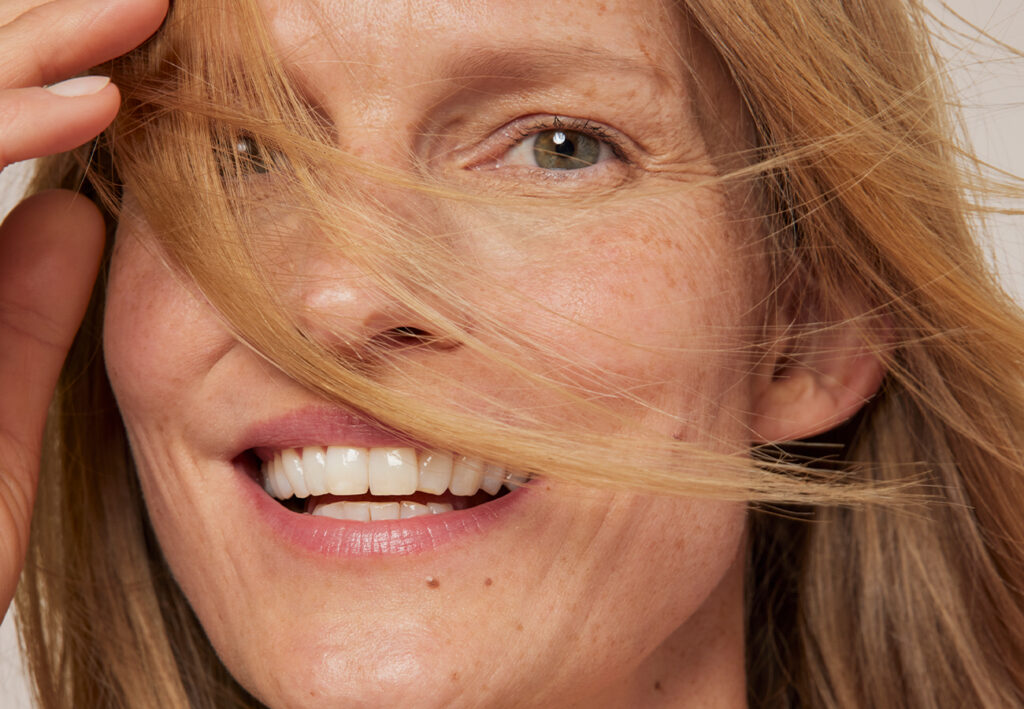1. Hair texture impacts highlight placement
Your colorist will first assess your hair texture and growth patterns—and yes, ideally you’re seeing the professional, for reasons like the one outlined in this bullet. “Hair texture is extremely important in where highlights should be placed on someone,” Basinski says. “Straighter hair is less forgiving [when it comes to the finished look], so it’s really important to follow the growth pattern and keep in mind how the client will or won’t style their hair.” If it’s going to fall over the face, or sweep back over the head, or be styled up and spiky, all of these will change the way the highlights add dimension, and the colorist needs to be mindful of it. “Wavy or curly textures are also important to consider the wave pattern so that there is an impactful ribbony effect while also looking natural. If the highlights are too thin they will get lost easily.”
2. Don’t stray too far from your base color
The most natural looking highlights aren’t going to grab attention. They work subtly to add the aforementioned dimension and depth to the hair. Anything too far from your base color starts to leave “highlights” territory and requires double processing and a platinum or coloring job.
“Generally, I like to stick to two to three shades lighter than the client’s [base] color,” says Basinski. “This way, the integrity of their hair isn’t sacrificed and they will also look the most natural, while also requiring less maintenance [in terms of toning and color preservation, and the products needed for maintenance].”
She adds that it’s most ideal to add highlights to your natural color, as opposed to a fully dyed canvas. “Natural/non color treated hair is definitely the best to work with, since there is a clean canvas working in the stylist’s favor.”
Here is one of Basinski’s clients, with a light brown/dark blonde natural base. The blonde highlights aren’t as high-maintenance on him since he’s already got the lighter base. They’ll add dimension when swept down (like pictured) or pushed back, and will keep doing so as the hair grows.

3. Fine & thinning hair should proceed with caution
Highlights can also help fine textures seem fuller, says Basinski. However, your colorist should be mindful of your more delicate strands and adjust the formula accordingly. “We use a gentler formula to get a beautiful lift and tone, while still keeping the hair strands strong,” she says.
And for anyone whose hair is thinning over time, it’s a case by case situation whether or not the highlighting will complement the hairstyle or draw attention to the thinning. The same goes for whether or not the formula will threaten the health of the vulnerable hair. “We do a test strand on any clients with hair loss or thinning,” she says.
4. Know when to highlight and when to dye/color
Basinski sees lots of clients who might think they want a highlight, but are actually seeking a demi-permanent dye job (that is, something that delivers an “in-between” kind of color, like to offset or discreetly hide grays. But if what you want is that sun-kissed dimension, then highlights are a definite. If you want something less playful and more edgy, then your best bet is a double-processed / bleached and toned look.
However, sometimes a grown-out dye job can have a highlighting effect. This is where there’s some gray area on the matter: The dye color would have to fall somewhere in the “sun kissed” range, and has to be relatively grown out compared to the rest of the hair, so that it has some dimensional effect.
5. Get quarterly touch ups
Some people get highlights for a one-off experiment—perhaps before cutting their hair off, or to accommodate the season. However, if you plan on maintaining highlights as part of your ongoing look, then Basinski says to plan on quarterly touch ups (every three to four months). This will play well into your haircut regimen (eight weeks for short-medium styles, 8-12 weeks for long ones), and the colorist can extend the highlights into the fresher hair growth, while also doing any necessary freshening on the existing color.
Highlights for men: The latest trend
If frosted tips were the trend of yesteryear (whether 1998 or 2016), then what is the most common highlight trend today? “Right now it’s all about keeping it ‘natural’ in my chair,” Basinski says. “I am seeing a lot of people who want to have fresh natural golden highlights.” Again, think “summer in the sun”, as opposed to strategically placed strips of hair. “People are going for more lived-in looks.”

Wrap up
No matter what style of highlights for men you decide to go for, keeping your hair healthy is crucial to ensuring your locks look fresh. Try Prose custom haircare here to discover your personalized formula that takes into account many factors including your hair dyeing habits.
Always made to order. Never made to waste.
Exclusive Trial Offer Get 60% Off + Free Gift
